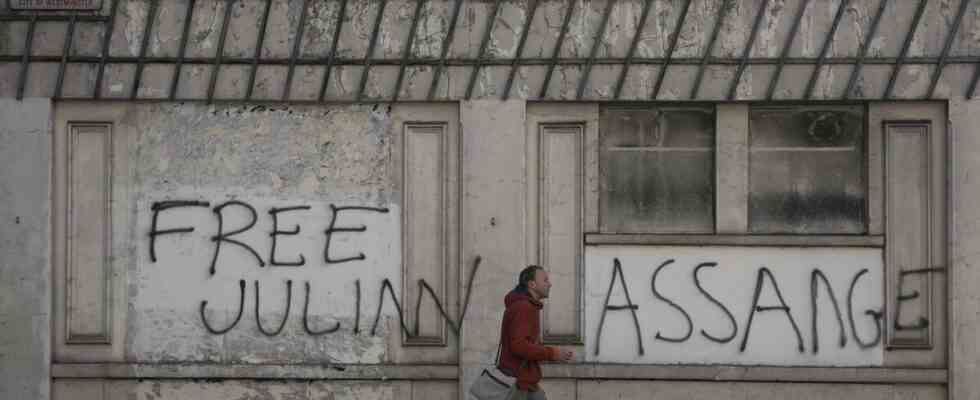Press freedom advocates are more worried than ever. On Wednesday, British justice formally gave the green light to the surrender of Julian Assange to American justice, which is prosecuting him for a massive leak of documents. But the WikiLeaks founder’s extradition remains suspended until Home Secretary Priti Patel signs a decree.
In a letter, officials from 19 organizations, including Reporters Without Borders and the European and International Federations of Journalists, urge the minister to “act in the interests of press freedom by refusing the extradition” of Julian Assange. The signatories call for his “immediate release” from Belmarsh prison, near London, “where he has been for three years despite the considerable risks to his mental and physical health”.
Julian Assange faces 175 years in prison
The founder of WikiLeaks is claimed by American justice who wants to try him for the dissemination, from 2010, of more than 700,000 classified documents on American military and diplomatic activities, in particular in Iraq and Afghanistan. The Australian was arrested in 2019 after spending more than seven years as a refugee in the Ecuadorian embassy in London.
Prosecuted under legislation against espionage which, according to the signatories, prevents him from defending himself effectively by depriving him of recourse to the notion of public interest, Julian Assange faces 175 years in prison. The signatories believe that despite assurances from US authorities, it is “highly likely” that he will be subject to conditions of solitary confinement in the US prison system that would “severely exacerbate” his risk of suicide.
Prosecutions against him, the signatories warn, “would set a dangerous precedent, which could be applied to any media outlet that publishes articles based on leaks, or against any journalist, editor or source anywhere in the world”.

